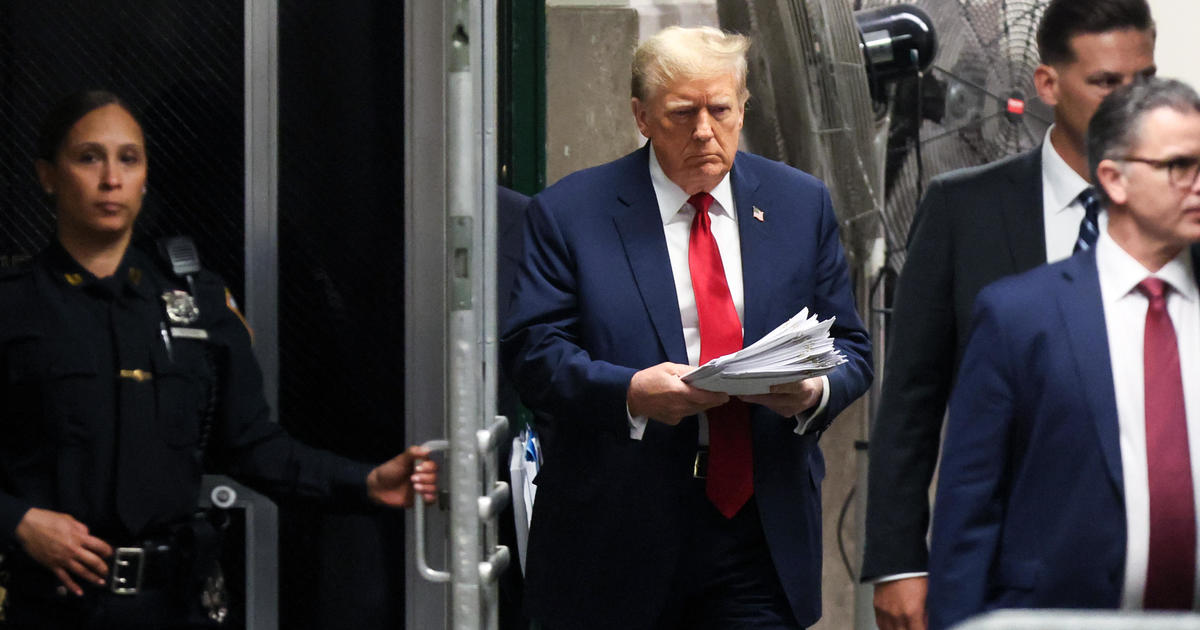Judges halt plan to exclude unauthorized immigrants from count used to award seats in Congress
A panel of three federal judges in New York on Thursday prohibited the Trump administration from moving forward with plans to exclude undocumented immigrants from the count used to determine the number of seats states receive in the House of Representatives. The decision temporarily halts an unprecedented proposal with potentially seismic political ramifications.
At the center of Thursday's ruling is a proclamation issued by Mr. Trump in July telling Commerce Secretary Wilbur Ross, who oversees the U.S. Census Bureau, to facilitate the collection of data that would allow him to remove immigrants without legal status from the count used for congressional apportionment. The constitutionally-mandated process to determine the number of House seats each state has occurs every 10 years after the census is taken.
The three-judge panel, which convened specifically to hear the case, said the proposal violates federal laws that govern the redrawing of congressional seats and the census count. The judges did not address whether Mr. Trump's directive is constitutional.
"By directing the Secretary to provide two sets of numbers, one derived from the decennial census and one not, and announcing that it is the policy of the United States to use the latter in connection with apportionment, the Presidential Memorandum deviates from, and thus violates, the statutory scheme," the judges wrote. "Second, the Presidential Memorandum violates the statute governing apportionment because, so long as they reside in the United States, illegal aliens qualify as "persons in" a "State" as Congress used those words."
Thursday's order stems from a lawsuit mounted by a coalition of states led by New York. The legal challenge is one of several filed against Mr. Trump's directive in federal courts across the country.
"The courts have ruled in our favor on every census matter in the last two years and continually rejected President Trump's unlawful efforts to manipulate the census for political purposes," New York Attorney General Letitia James said in a statement.
According to an estimate by the Pew Research Center, California, Texas and Florida would get fewer seats than expected in the House of Representatives if Mr. Trump's changes are instituted. Alabama, Minnesota and Ohio, on the other hand, would keep seats they would otherwise have lost.
The Census Bureau's efforts to count people for the 2020 census — which have been hindered by the coronavirus pandemic — are currently underway. Earlier in the month, a federal judge in California blocked the administration from shortening the final deadline to collect census responses, a move advocates say would lead to an undercount, particularly among communities of color.
Since the first census was taken in 1790, the U.S. has always counted both citizens and non-citizens, regardless of their immigration status, for the purposes of congressional apportionment. The Constitution stipulates that each state must have at least one representative, and that the apportionment of other seats should be based on an enumeration of the population.
Until the 14th Amendment was ratified in the 1860s, enslaved African Americans were counted as three-fifths of a person for congressional apportionment. American Indians who were classified as "not taxed" were excluded until 1940.
The 14th Amendment also requires Representatives to be apportioned based on "the whole number of persons in each State." In his order in July, Mr. Trump said that because "persons" is not defined, he has the "authority to exclude from the apportionment base aliens who are not in a lawful immigration status." Doing so, he added, would uphold the principles of a representative democracy.
Officials at the Census Bureau and the Departments of Justice and Commerce did not respond to requests for comment on Thursday's order, which could be appealed to the U.S Supreme Court.
Mr. Trump's order in July is part of a broader effort by his administration to change how people in the U.S. are counted in the census and how that data should be used.
The Trump administration first proposed including a question on U.S. citizenship during the 2020 census in March 2018. But its efforts do so, which it said were aimed at enforcing the Voting Rights Act of 1965, elicited a flurry of legal challenges that ended up in the Supreme Court, which blocked the administration from adding the question in time for the questionnaires to be printed.
During the litigation over the question, it was revealed that Thomas Hofeller, a now deceased conservative political operative, played a role in helping the administration craft the justification for the citizenship question addition, which he said in a 2015 study would allow officials to draw electoral maps advantageous to "Republicans and Non-Hispanic Whites."




